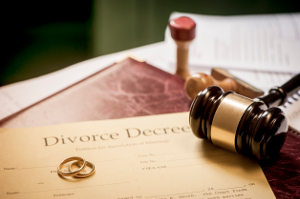How Do My Insurance Needs Change in the Event of a Divorce?
Unfortunately, divorce is one of those major life events. Many things change when a divorce happens from living situations to splitting up assets. There is so much to figure out and digest  that insurance is usually the last thing on your mind. It may not be until you need to change your auto policy or work asks you to change the beneficiary on your life insurance policy that you begin to think about your new insurance needs. Below is a checklist of insurance items you may want to think about in the event of a divorce.
that insurance is usually the last thing on your mind. It may not be until you need to change your auto policy or work asks you to change the beneficiary on your life insurance policy that you begin to think about your new insurance needs. Below is a checklist of insurance items you may want to think about in the event of a divorce.
Car Insurance
The first thing you want to discuss with your spouse is your car insurance policy. Decide whether you are, for the time being, going to stay on the same policy while your divorce is proceeding or if you are going to have separate policies.
If you are going to have separate policies it is a good idea to contact your insurance agent to discuss coverage and premiums for your new policy. This might also be a good time to shop around and see if you can find a better rate. Rates can change based on the driving records of the individuals on your policy. If your soon to be ex-spouse has had some driving issues and you have a clean record, going to a solo policy may drop your rates.
It also important to make sure the vehicle you possess after the divorce is registered and insured in your name. If the registration is in both your and your ex-spouse's name, you will need to contact motor vehicles to change the name on the registration if the vehicle will be in your name only. You will also need to change your registration and auto insurance policies if you decide to revert back to your maiden name.
Homeowner's / Renter's Insurance
In the course of getting a divorce your living situation will likely change. You may receive the marital home during the divorce or maybe you are now renting a place. In either case, it is a good idea to contact your insurance agent to discuss your insurance options.
If you are maintaining your current home in your name solely, the spouse that is relinquishing ownership of the home will quit claim the property over to you. It is best to wait until the town property deed is updated before changing your home insurance policy into your name. It may be in your best interest to also discuss your coverage with your insurance agent to make sure you have appropriate coverage based on your new living situation.
If you are planning on renting an apartment or home after your divorce, it is a good idea to secure a renter's insurance policy. Renter's insurance will protect your personal belongings in the event of fire, flood, theft or other catastrophes. It will also provide you with liability coverage in the event that someone is injured on the property. For example, if a mailman slips and falls on the steps because you did not shovel them, you could be held liable even though you don't own the home. Liability insurance will help protect you from incidents like this.
Renter's insurance is much less expensive than homeowner's insurance. For the reduced amount you will pay, it is well worth getting and provides peace of mind.
Life Insurance
Life insurance is certainly not the most pleasant thing to discuss but if you are getting divorced, it is something that needs to be addressed, especially if you have dependents. It is important to think ahead to your children and family's future.
If you don't currently have life insurance, your insurance agent can help you determine what type of life insurance will work best for you and what payout amount will be most beneficial. It is also important to decide who the beneficiary of your insurance policy will be in the event of your passing.
For example, you may want to have your children as the beneficiary of your policy. This may be especially true if your children are older . If you have children in college that still live in the home with you, the policy payout may help them stay in the family home or find other suitable living arrangements. You may have children that live independently with their own families and the policy benefits may help them live more comfortably.
If you have underage children you may want to have their designated guardian in the event of your passing as a beneficiary. This may be your ex-spouse, parents, siblings or any other persons who will take care of your children. It is important to discuss this information with the person you are designating to receive the funds. It may also be appropriate to seek legal councel to have a signed agreement as to how the money will dispersed to said dependents.
The Takeaway
In the event of a divorce, it is important to call your insurance agent and discuss the important life changes that are happening. Your agent can help guide you and assist you in making sure that you are properly insured for this new phase of your life.
If you’d like to know how we can help you save money on your insurance or understand any coverage, please contact us at
